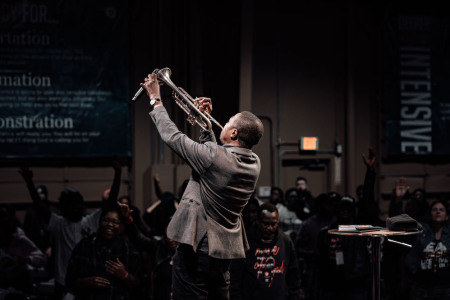Minority of pastors feel ‘very well equipped’ to lead during pandemic

While most pastors feel “somewhat equipped” to help steer their congregants through the coronavirus pandemic, only a minority say they feel “very well equipped” to lead in the crisis, according to a new study.
Experts examined what it has looked like as American churches have weathered the pandemic and found that only three in 10 or 30% of pastors say they feel “very well-equipped,” to help their congregants through their present mental and emotional troubles, according to recent research by Barna.
The majority, 64% say they feel “somewhat equipped,” while a remaining 6% say they are “not well-equipped” at all to help their congregants with mental and emotional issues.
Barna and research partner Pepperdine University’s Boone Center for the Family recently found that 58% of U.S. adults and 54% of practicing Christians say they have at least one relational, emotional or mental health issue that impacts their most important relationships in Restoring Relationships: How Churches Can Help People Heal & Develop Healthy Connections.
Sharon Hargrave, Boone Center’s executive director, and relationship IQ program director, Kelly Haer, both licensed marriage and family therapists, recently offered some ideas on how church leaders can better equip themselves mentally and emotionally to serve their congregations.
“I have always believed that the Church is a great resource for people to go to receive help with things like anxiety and depression. Though, over the last several years, there’s been some separation [in how we care for people] — professionals deal with mental health care concerns and church people deal with spiritual concerns — and I think we’ve missed volumes of opportunity here,” Hargrave told Barna President David Kinnaman in an interview.
“I believe the Church is very well-suited to help with relationship and mental health care concerns, and our programming at the Boone Center for the Family is designed specifically to intertwine theology and psychology in such a way that church and mental health care workers can work together,” she said.
Hargrave said the coronavirus pandemic has been causing people to question both their identity and safety and while it is not easy to do in these unpredictable times, church leaders could work on doing things that can help.
“When our identity and safety is challenged, we can respond from a place of peace, or we can respond in a destructive manner. I think as Christians stepping out into the world right now, it’s really important that we be aware of how we’re responding to things,” Hargrave said.
“As leaders of organizations [or churches], people not only have relationship with us as individuals; they have relationship with us as organizations. When things don’t go well and our identity feels triggered, we can have a blaming response or a shame response. As leaders of organizations, we need to be very aware of how we are personally responding to things,” she said.
She further added: “I especially see predictability as one of the most frightening things for organization leaders right now. … Six months ago, I could have told you what I thought the next six months of the Boone Center for the Family would look like. But right now, I’m still trying to figure that out on a daily basis.”





















